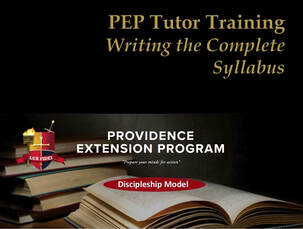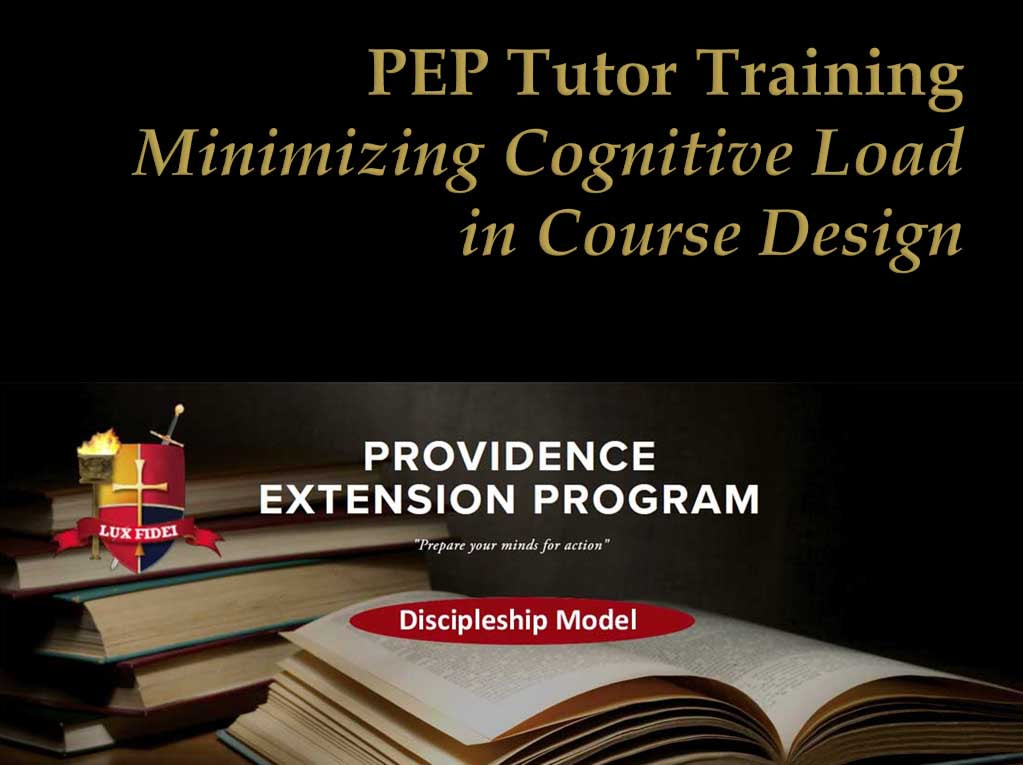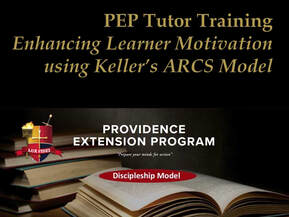Providence Extension Program - Tutor Training
|
Welcome to the Tutor Training Page for Providence Extension Program
At PEP we recognize that in addition to our Biblical worldview, rigorous curricula, and discipleship model, our biggest asset is our caring tutors. While many of our tutors are subject matter experts (SME) in the fields they teach, training and instruction are still important in excellent pedagogy and PEP's mission as a ministry. To maintain vitality and relevance in a fast-changing world, every summer PEP hosts face-to-face tutor training, and provides additional training through online modules. |
Writing the Complete SyllabusHaving been informed by Linda B. Nilson's textbook, Teaching at its Best: A Research-Based Resource for College Instructors, this course was written specifically for the instructors at Providence Extension Program campuses.
This course addresses the importance of continuity with respect to administrative documents for student and parent use, in order to minimize the extraneous cognitive load on the part of both when navigating through these documents. Nilson's text provides the foundation for all the elements that should be contained within a complete syllabus. Finally, there is a step-by-step process for the instructors developing their own syllabus with accompanying pacing guides, using a model from a general chemistry instructor. |
Minimizing Cognitive Load in Course Design
Largely following the Cognitive Load Theory model by John Sweller, this course introduces teachers to concepts surrounding cognitive processing, from the input of stimuli to one of the two sensory registers, its interaction and integration with long-term memory, and the limited nature of working memory.
Because of the limitations of memory, it is important to develop instructional materials that do not unnecessarily tax this memory, generating cognitive overload. |
Enhancing Learner Motivation using Keller's ARCS Model
Learners live in a very distracting digital world, so now more than ever it is important to develop instruction that both gathers and maintains their motivation. In this course, tutors learn how to use the tools for motivation as delineated by John M. Keller in his ARCS model.
Developing and delivering instruction employing the concepts contained within the acronym "ARCS" (A=Attention, R = Relevance, C = Confidence, and S = Satisfaction) will do much to enhance the motivation of learners. |



